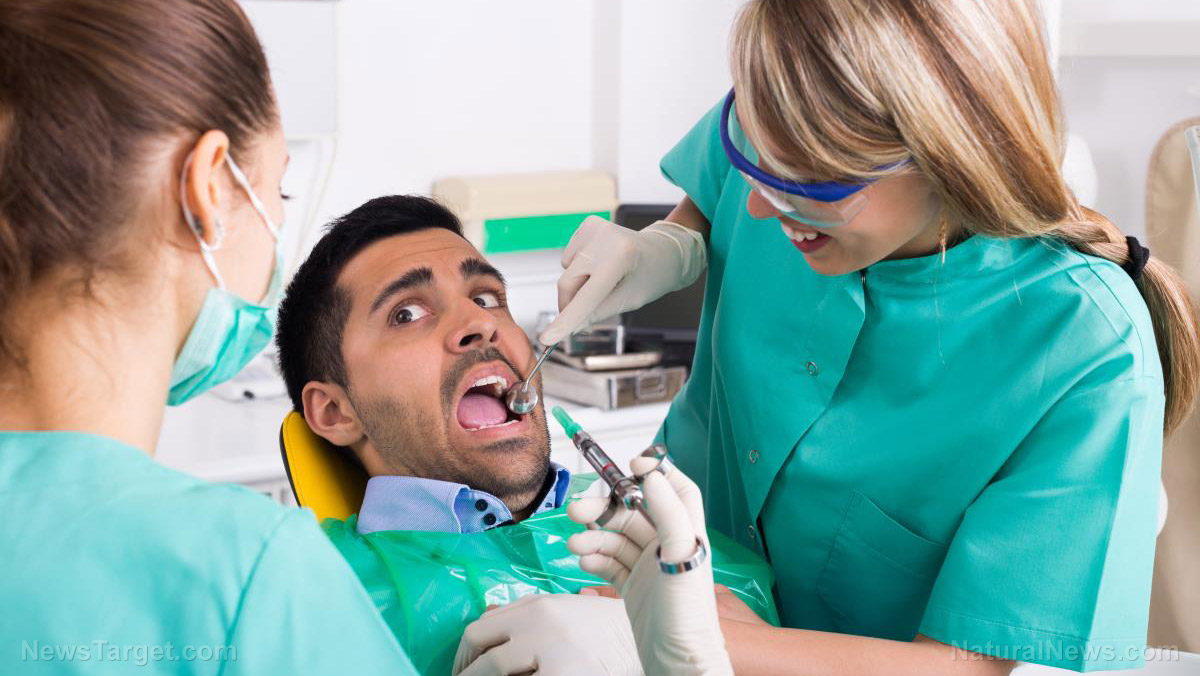What’s a little extra radiation gonna hurt — if your insurance pays for it? Study reveals dentists take many x-rays for financial incentives
02/18/2018 / By Edsel Cook

You may want to pay closer attention when your dentist recommends you get an X-ray. ScienceDaily detailed the ghastly results of a major study that discovered dentists are willing to dose their patients with unnecessary X-rays if they get paid for it.
Researchers from the Centre for Health Economics at the University of York investigated the connection between how dentists get paid and what takes place in the chair. They examined over 10 years’ worth of records from Scotland involving dentists who worked on a “fee-for-service” basis (where the health professional charges the patient for each item of treatment), those with fixed salaries, and their patients.
According to the results of their study, “fee-for-service” dentists administered a significantly higher number of X-rays to patients than dentists with fixed salaries. The biggest increase in the rate of X-rays were found in patients who were exempt from charges.
Health professionals such as dentists use X-rays to diagnose the bones and dental tissues of their patients. Unfortunately, X-rays are also a known carcinogen, and the harmful radiation involved in the process can damage DNA and stop the natural healing factor of cells.
The unnerving findings have prompted the researchers to call for a closer look into the financial arrangements of dental health professions. They also raised concerns about the ability of existing guidelines to protect patients from their own dentists.
“Our study clearly shows that a potentially harmful treatment is being given in varying quantities according to how dentists are paid for it and we believe this is a genuine cause for concern,” reported Professor Martin Chalkley, the co-lead author of the study.

“Dental X-rays deliver a very small dose of radiation, but there are no safe levels — every last bit of radiation is potentially harmful. Each dentist has to weigh up the risks versus the benefits before they take the decision to X-ray and our findings indicate that this calculation is being distorted by financial incentives,” he reminded listeners. (Related: Anthropologists discover how teeth reveal vitamin D levels: X-rays can now be used to check for deficiency.)
For their study on the behavior of dentists based on financial arrangements, Dr. Chalkley and his fellow researchers sourced their extensive data from NHS Scotland, the public health care system in Scotland.
Scottish dentists subscribe to either of two different payment methods: “fee-for-service” or fixed salary.
“Fee-for-service” dentists can charge separately for their every service. The patient and the NHS divvy up the costs between them. Salaried dentists, on the other hand, receive a fixed wage no matter how many patients they treat or services they provide.
Fee-for-service
Many dentists around the world adhere to the fee-for-service billing method. The researchers chose Scottish data because it is “uniquely detailed.”
Over time the researchers were able to dismiss factors such as the personalities and professional approaches taken by dentists or the different demands of patients. They eventually isolated payment as the influencing factor on the number of X-rays.
“Equally we also observed the same patients receiving an increased number of X-rays when they were with a fee-for-service dentist and particularly when they were exempt from charges — perhaps because exempt patients will offer the least resistance and may even welcome additional procedures,” Dr. Chalkley theorized.
His co-lead author, Professor Stefan Listl, argued for the restriction of X-rays to absolutely necessary levels. “We can’t say whether our study observed excessive X-raying, but we can say that the amount of X-raying differed according to the financial arrangement,” he said.
The University of York research team urged government, financiers, and regulators to work together and push needed reforms.
One of their recommendations is to improve IT and administrative systems. If different dental practices were able to share their records, patients could forgo the need for a new X-ray when they go to a different practitioner for the first time.
For more stories regarding the dental industry and dental health, visit Dentistry.news.
Sources include:
Submit a correction >>
Tagged Under:
carcinogen, dental health, dental horror story, dental X-ray, dentist, dentist horror story, dentistry, fee-for-service, harmful radiation, medical ethics, profiteering, radiation, X-Ray, x-rays
This article may contain statements that reflect the opinion of the author




















